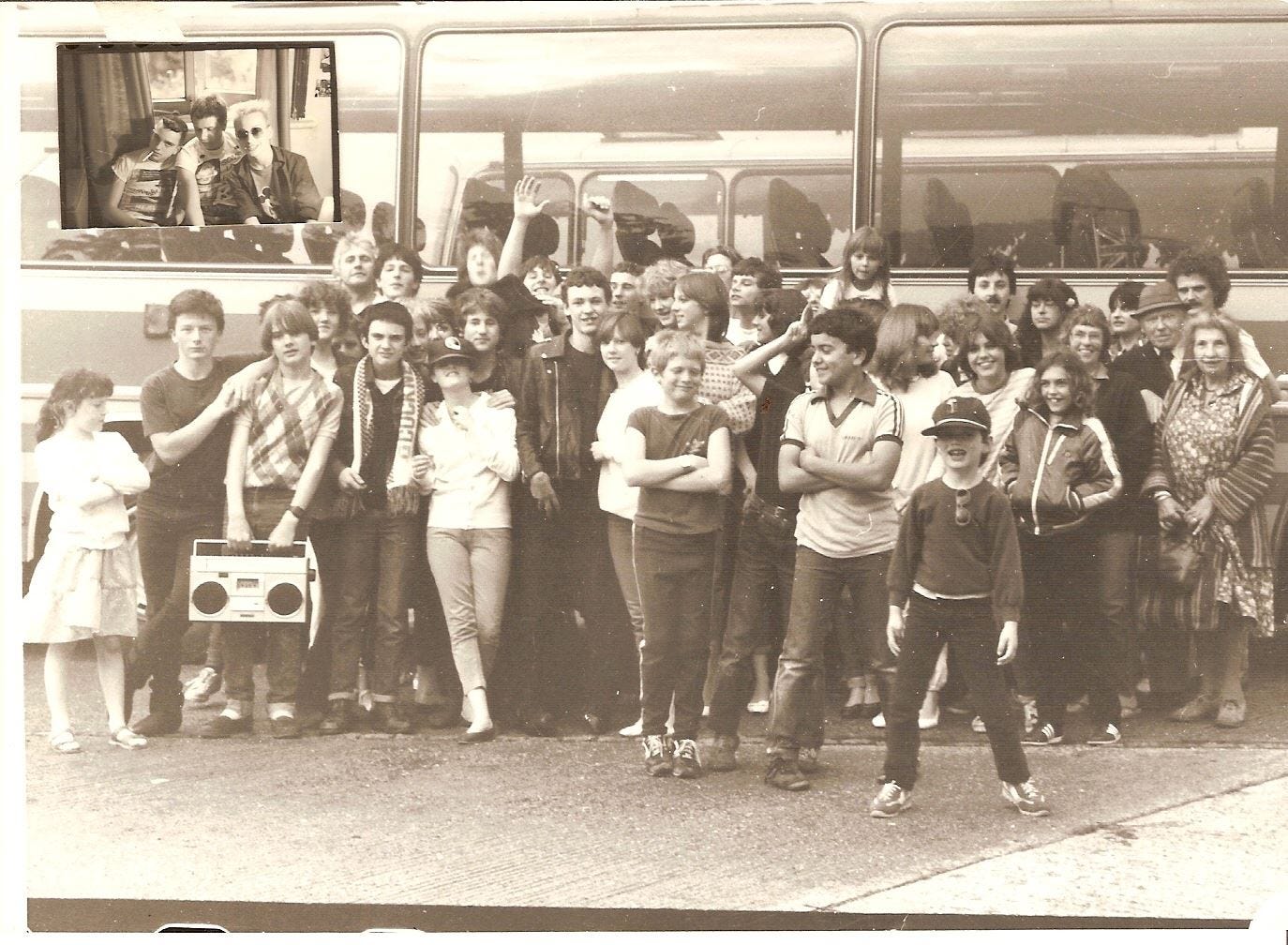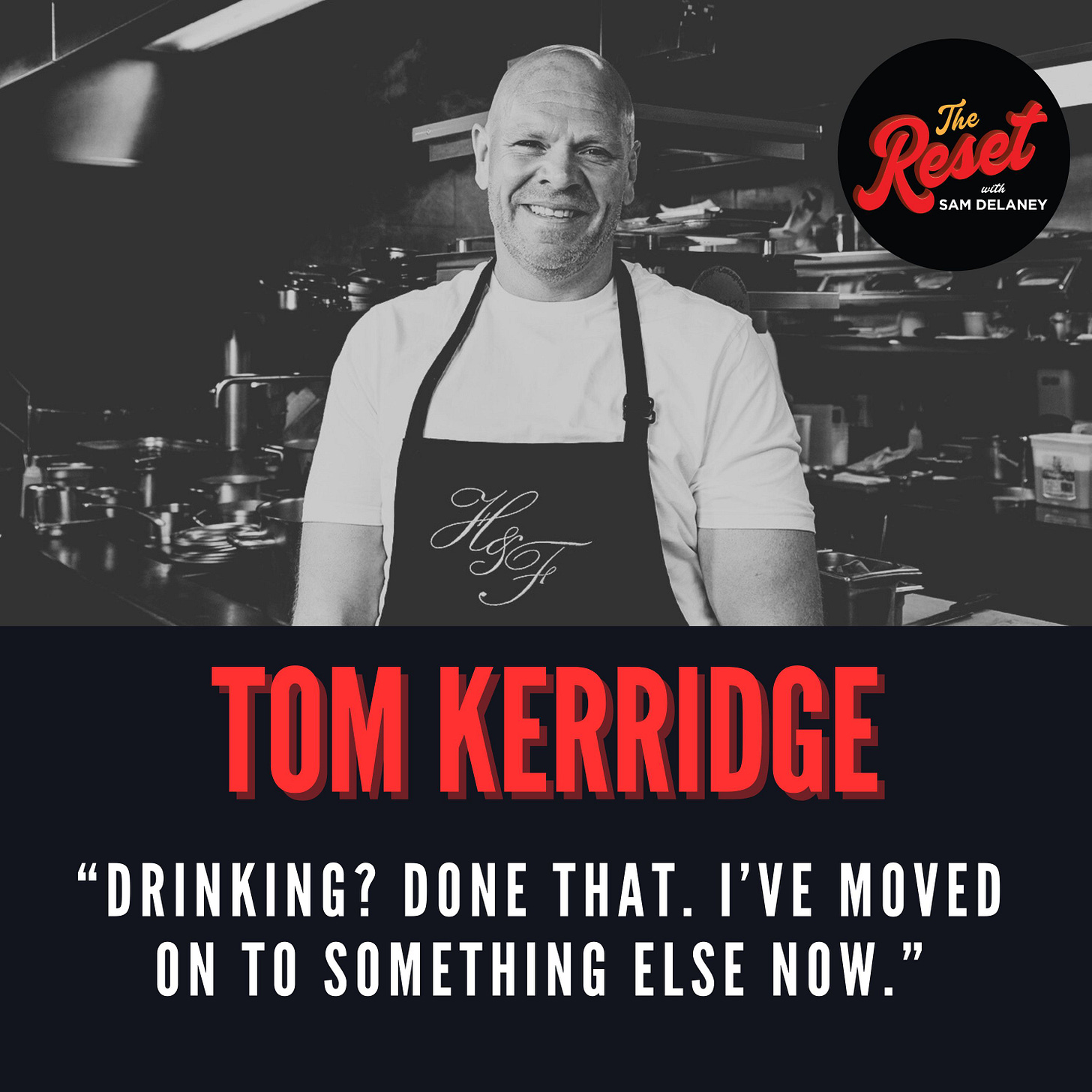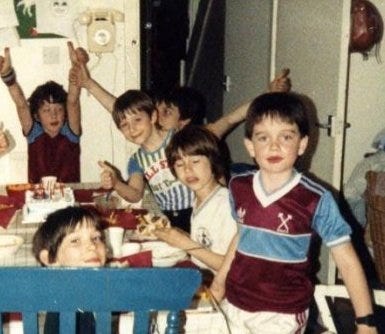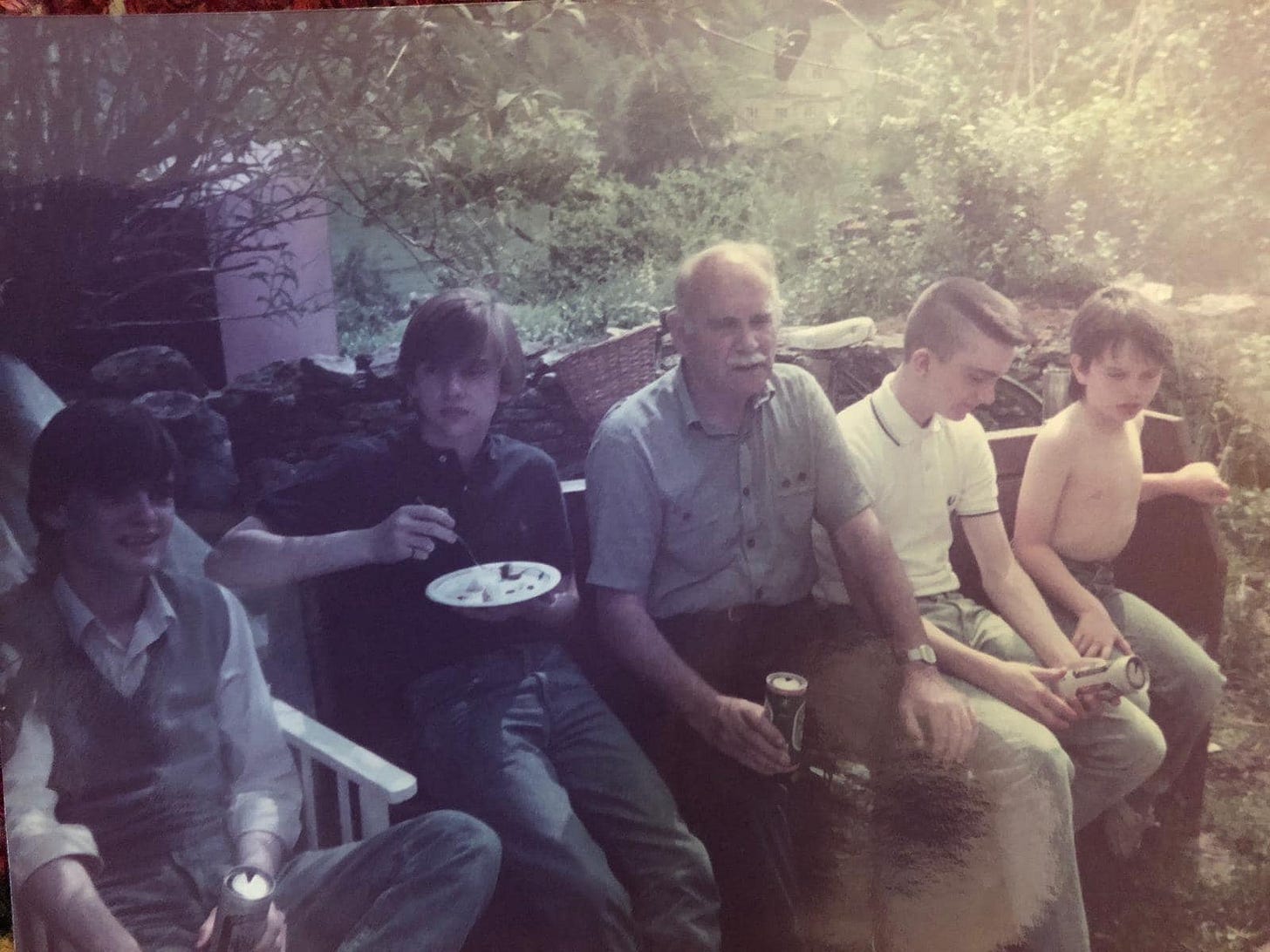Why Class Is A Confidence Trick
It's been a great week for those of us from council houses and comprehensives
Above: A west London neighbourhood coach trip to Littlehampton, 1983. That’s me right at the front (on the right) in the baseball cap. My brothers Cas (holding the boom box) and Dom (scowling in the scarf) are front row, 3rd and 4th from the left.
Hi everyone.
It’s been a while since I have posted any new words, for which I apologise (especially to my highly valued Reset Extra members).
A few reasons/excuses: 1. I was finishing my new book - ‘Low Performance’ - which took up load of my time and almost all of my writing capabilities for a few months (it will be published early 2025 by Constable). 2. Had a tough few months with family stuff that wiped me out a bit mentally and 3. Then I got Covid which hung around for an unreasonable amount of time.
So anyway, it’s been a tough year so far but a pretty rewarding too one in many ways . Things are getting better now and I will be posting more in the coming weeks and months.
Thanks for sticking with me.
Anyway, on with this week’s letter.
I have recently published a brilliant new pod episode featuring the chef, Tom Kerridge (out now for Reset Extra members, available Thursday 11th July for everyone else). Like me, Tom grew up in council housing with a single parent. Also like me, he became addicted to work and alcohol for many years then decided to get sober at 40. The parallells between our experiences were plentiful - although he has had substantially more success than me. His pub, the Hand and Flowers, has two Michelin stars, he runs a whole business empire, has published numerous best-sellers and is always on the telly.
He describes himself as addicted to chaos: he thrives amidst intense schedules and relishes the unexpected. This might well have been why he developed a drink problem. But despite being sober for over ten years now, he has managed to maintain the hyper-driven edge that helps him enjoy life and success in his career. It’s inspiring: so many people worry that they will become reclusive and boring when they quit booze. But, if anything, sobriety just helped Tom crank things up: he now has more energy and a mind that functions and fizzes with ever more brilliant ideas. He has discovered, like I have, that booze is not the thing that fuels your personality but the thing that holds it back.
I mention growing up in council housing and single parent families because its been on my mind a lot recently. How does that kind of upbringing shape the kind of people we grow into? Is it relevant? I think so.
The new government is dominated by people who went to state school; many of them grew up in council houses as part of family set-ups that didn’t quite conform to the nuclear ideal.
There are various reasons this is great. Firstly, it means the people who govern us have better insight to and empathy with the problems that ordinary folk face throughout their lives. This, surely, will help them to find more effective and realistic solutions to society’s ills.
Secondly, growing up in a comprehensive school and living in a diverse and/or underprivileged community breeds a healthy open mindedness. It teaches you to take people as you find them: not judging them on the basis of their class, race or appearance.
Above: My 9th birthday party, with some of the lads from school, in our little council house, 1984.
I grew up in a small street where the neighbours included a builder, a salesman, a domestic cleaner, several unemployed people, a sewage worker and a burglar. In my house, there was a secretary (my mum), a milkman (my mum’s boyfriend) and a postman (my brother Dom).
I understood that their jobs, their appearance and their social status was not a reflection of their intelligence, humanity or value as people. I loved some of them, respected most of them, liked the majority and tolerated the milkman.
My brother Dom pounded the streets of WC1 delivering mail in the rain after leaving school at 16. He hated it but it earned him money that allowed him to chip into the housekeeping. My brother Cas left school a year after him (also aged 16) and became a benefit claiming, stay at home stone-head for a year or so. Dom resented Cas’ slovenly lifestyle and used to verbally lay into him every night when he got in from work. Until one night, Cas could take no more and smashed his dinner plate over Dom’s head, mid rant. A potato flew upwards and stuck to the ceiling. We didn’t own a step ladder so, somehow, the potato remained up there for several months afterwards. It was a chilling reminder of the ugliness of fraternal violence.
Anyway, years later, Dom and Cas both ran one of the world’s biggest production companies together. There was no plate smashing or weed smoking by then. They were driven, smart and ambitious. Like my other brother Theo, who didn’t live with us back in the plate smashing days, they were an inspiration to me.
Me and my brothers, early 80s. From L to R: Theo, Cas, our grandad Sam Snr, Dom, Me.
We had been abandoned by our dad when we were quite small and left to grow up in pretty difficult circumstances. Did that sense of rejection make us determined to prove ourselves as worthy? Did the financial insecurity of our childhood make us fearful of poverty and driven to succeed? Did the heroism, hard work and incessant positivity of our mother - who raised us alone with unswerving love and kindness and good humour - give us the confidence and resolve we needed to succeed? I think so, yes.
Our mum, Bren, ruling the roost with her trademark bantz. Our kitchen, some time in the mid-80s.
I wouldn’t want my kids to grow up in excatly the same circumstances as I did. But I do think that a certain amount of adversity can help give you the resilience and determination that can help you thrive thrive. More importantly, I think it can stop you from becoming entitled or arrogant.
The expensively educated wankers who ran the country for the past 14 years had little in the way of humility. They had been raised to believe in their own natural superiority to others. This was dangerous because it prevented them from ever doubting their own decisions or instincts, even when all the evidence suggested that they should.
It also meant that they only worked with people just like them: cabinets were often composed of old mates who knew each other at school or university. It was too narrow a social cohort to succeed. The posher classes just don’t trust people who haven’t grown up in the same environment. Worse, they seem to have mild disdain for outsiders. It leads to a small mindedness and narrow worldview.
Class is a confidence trick: the poshos bamboozle the rest of us into thinking they know something we don’t. People believe that Tories know how to manage the economy better just because they are rich and well spoken. But the Tories crash the economy and crank up debt every time they are in power. Britain now owes more money that it has done in seventy years. Still, boot licking members of the aspirational classes still secretly believe that these double barrelled dopes must be smart because - well - they speak a bit of Latin and get their suits from Savile Row.
Oh well, none of that matters too much now because the normal people are in charge again: politicians with the intelligence, the work ethic and the compassion that comes from growing up in small houses, living among unconventional families and learning in big, scruffy, brilliant schools.
Like I say, it’s been a bit of a tough year. But just recently things have started to feel a whole lot better.
Come on England!







Good read that Sam, the point around seeing people for who they are not what they do is huge. Also, glad you are feeling better, sounds like a tough first half of the year but definitely some optimism for the second half. Take care, just rest.
Great piece, Sam, and hits the bullseye dead centre. Just read it whilst watching my son at his karate class in his primary school, in one of the most deprived areas of Bolton where last week they finally saw sense and got rid of the lying Tory MP(s) in favour of Labour- far from perfect but there's that glimmer of hope now, that things will actually improve for everyone that lives here (and not just the affluent areas of Bolton; yeah they do exist!)
I grew up very near to Mr Dawson's home town (village), which was a former pit village destroyed by the Tories. We were relatively lucky in that my parents never split (up until my dad's passing at the start of last year), and he was a civil servant- not what you'd call well off but we had enough, lots compared to many kids at my school.
It baffles me that so many of those kids whose families had next to nothing (or less) have grown up to be Tory voters (well, Reform UK this time) whereas most of the ones I know who no longer live in the region are Labour (or Green).
Anyway, I got carried away- glad things are on the up for you this year and I can't wait for the next book!
Be Lucky.